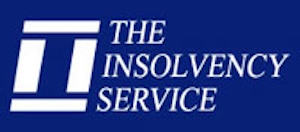A pension liberation company has been shut down after an Insolvency Service investigation, which uncovered investments of over £3.3million.
Thames Trustees Ltd, a Preston-based company, “facilitated and operated a pension liberation scheme”, according to officials.
The Insolvency Service reported today the business has been wound up in the High Court.
The company acted as trustee of the Westminster Pension Scheme, which was established in December 2012.
Investigators found 79 members joined the scheme and invested an aggregate of £3,333,665 by transferring their existing pension scheme investments into it.
The Insolvency Service said in a statement: “Clients were induced to move their existing pension funds into the Scheme on the basis that they would receive in return a cash payment either in the form of a ‘loan’ from an associated company (typically of 50% of the funds) or from commission on investments made by Thames Trustees Ltd on behalf of the Scheme. In fact, there was never any intention that the loans received by clients would be repaid and the Scheme, instead, operated as a pension liberation scheme providing clients with earlier access to pension funds than is permitted by the Finance Act 2004.”
Colin Cronin, Investigation Supervisor with the Insolvency Service, said: “The structure of this pension liberation scheme was deliberately opaque and the lack of transparency was added to by the failure of those in control of the company to fully cooperate with the investigation.
“The operation of the scheme was highly prejudicial to the clients who were required to invest their pension funds into it in order to obtain the early release of part of those funds. The balance of funds were not legitimately invested as clients were led to believe. These proceedings show that the Insolvency Service will take firm action against companies which mislead the public in this way.”
The court found that the company had operated with a “lack of transparency and a lack of commercial probity”, officials stated.
Among the findings, the Insolvency Service reported, were that the recorded directors of the company had no knowledge of the activities of the company and / or the investment of the monies received by the company on behalf of the Scheme.
Officials said that those in actual control of the company gave conflicting explanations about their roles but received significant commission payments, which were deducted from the funds transferred into the scheme by clients, without the prior knowledge of those clients.

